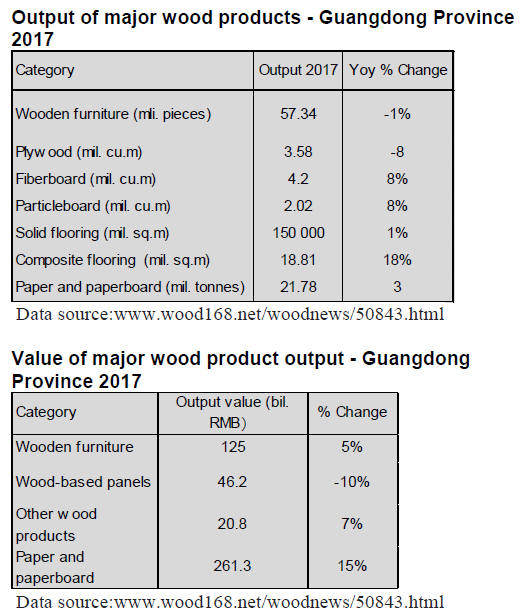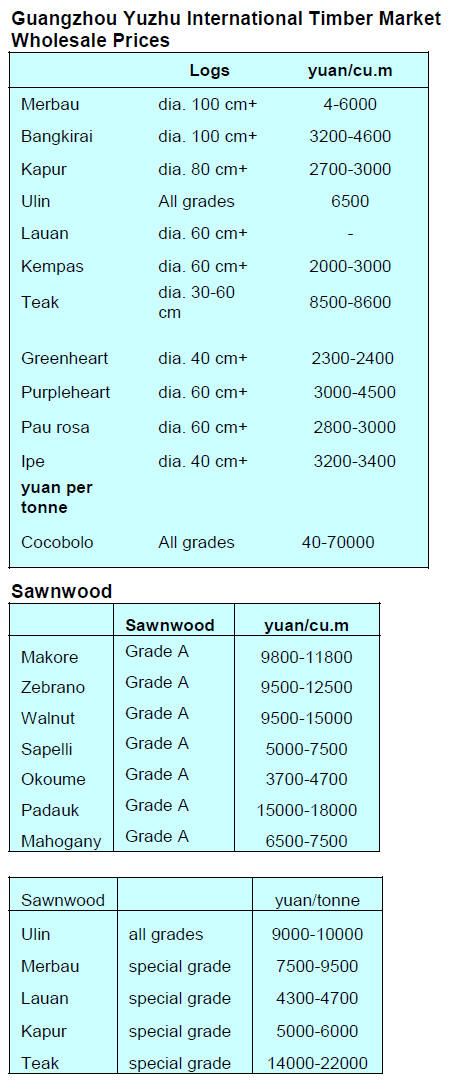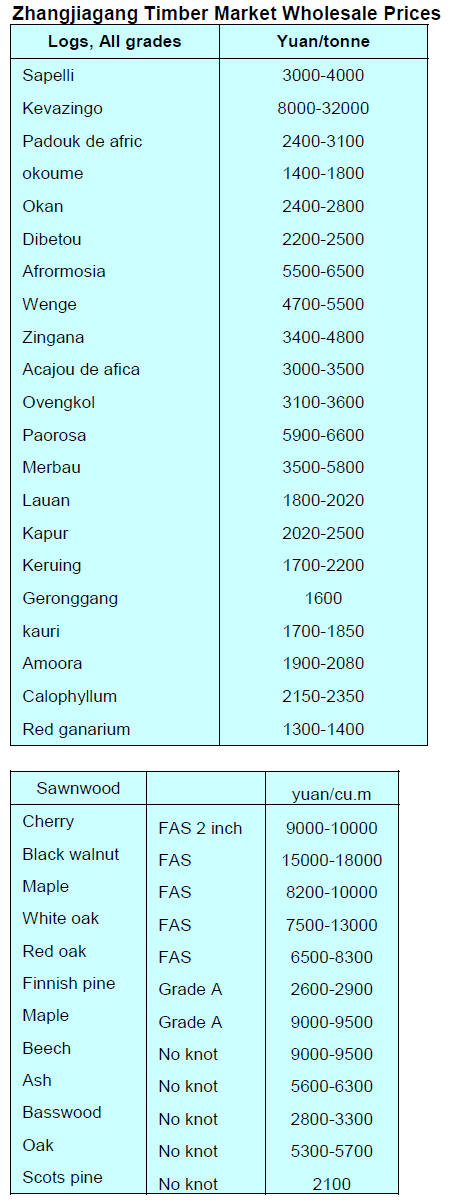US Dollar Exchange Rates of 10th October 2018
China Yuan 6.8899
Report from China
3000 plywood enterprises closed
A massive restructuring effort to eliminate outdated and
polluting wood processing mills, many of them being
plymills had, by the end of 2017, resulted in around 3,000
plymills across the country being closed.
A total of 621 fibreboard production lines were dismantled
or shut down eliminating over 20 million cubic metres of
production capacity. However, within a year fibreboard
output had recovered.
In addition, more than 900 particleboard production lines
were either relocated or closed reducing the installed
production capacity by around 17 million cubic metres.
Overall in 2017 there was a 15% decline in the number of
woodbased panel enterprises.
These changes affected mainly the smaller companies such
that by the end of 2017 production capacity had
consolidated in fewer but large and medium-sized
enterprises. This restructuring has resulted in an increase
in cross-industry mergers and acquisitions within the
industry.
By the end of 2017 there were 117 continuous flat
pressure fibreboard production lines throughout the
country with an annual production capacity of 19.4 million
cubic metres accounting for 41% of the national total
production capacity of fibreboard. There were also 40
continuous flat pressure particleboard production lines in
operation.
Wood processing industry in Guangdong Province
Wood product output from plants in Guangdong Province
has been steadily increasing in tandem with increased of
domestic and international demand.
In 2017 total output from mills in Guangdong Province
exceeded 10 million cubic metres. Much of the raw
material is available locally and the standing forest stock
in Guangdong Province is over 600 million cubic metres
say analysts.
The expansion of wood processing industries in
Guangdong Province has driven investment in forestry and
an increase in timber imports and advances in recycling
and residue utilisation.
The total value of wood product output in Guangdong
province in 2017 was RMB802.3 billion, a year on year
increase of 4% and accounting for 12% of the national
total.
It is estimated that there are more than 20,000 wood
processing plants in Guangdong employing some 3 million
people and this sector has contributed to economic
development and social stability in Guangdong Province.

Log imports are an important source of raw materials for
wood processing plants in Guangdong Province
accounting for over 50% of raw material requirements. In
2017 about 63 million cubic metres (log equivalent) were
imported with about a quarter of this transported from
Heilongjiang, the Inner Mongolia Autonomous Region
and Jiangsu Provinces.
Rise in the value of wood products exports through
Weifang city
According to Weifang Customs, in the first three quarters
of 2018 the value of wood product exports through
Weifang City amounted to US$752 million, a year on year
increase of 19%, setting a new record for exports by local
companies.
There are currently 192 wood processing enterprises that
are exporting wooden furniture and wood-based panels
mainly exported to the United States, South Korea, the
United Kingdom and Japan.
Weifang Customs has shortened its inspection and
quarantine time and generally improved its efficiency in
order to support export growth. In the first three quarters
of this year Weifang Customs issued 1,391 certificates of
origin to timber exporters and the enterprises received
more than US$20 million in foreign tariff relief to improve
their price competitiveness.
Rise in price for radiata pine
It has been reported that the price for radiata pine logs has
recently increased by RMB50 per cubic metre. Prices for
hemlock, douglas fir and scots pine logs are also moving
higher.
According to some businessmen the rise in prices for US
logs is the result of trade policies in the US.
Market analysts comment that the rise in prices of these
logs is mainly due to fluctuations in the exchange rates
and increased US domestic consumption and that this has
created an opportunity for radiate shippers to raise prices.
 
|